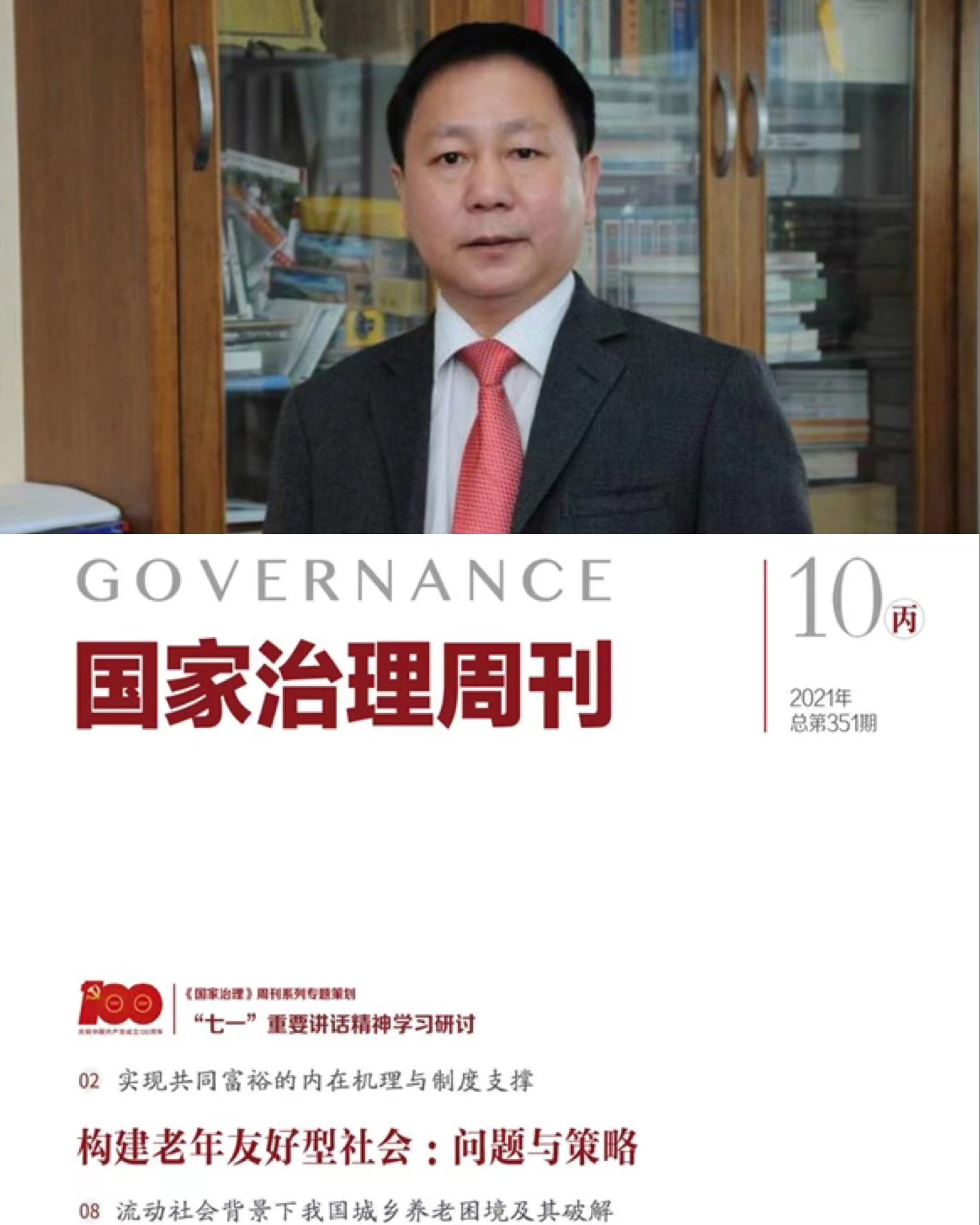The Inner Mechanisms and Institutional Support for Achieving Common Wealth written by Professor Yang Canming, President of ZUEL and Director of IIDPF, was recently officially published in Governance. This paper combines Marxist political economy theory with an in-depth analysis of the basic socialist economic system to explore the inner mechanism and institutional support for achieving common prosperity in China.

  The analysis found that: (1) China's three basic economic systems have demonstrated the superiority of the socialist system in eliminating polarization and ultimately achieving common prosperity; (2) the basic economic system, in which public ownership is the mainstay and a variety of ownership systems develop together, can effectively stimulate the vitality and creativity of all types of market players, promote the active role of all ownership systems in raising residents' incomes, and promote the (3) China's current distribution system has increased the proportion of labour remuneration in the initial distribution, providing important institutional support for the gradual realization of common prosperity for all people; (4) the socialist market economy system with Chinese characteristics not only solves the problem of market failure, such as the polarization of the rich and the poor, but also embodies the institutional advantage of socialism in concentrating power on major issues, providing institutional support and guarantee for better institutional support and guarantee in income distribution.
  The study has come up with the following four recommendations: (1) To speed up the realization of common prosperity, it is necessary to build a basic institutional arrangement that coordinates the primary distribution, redistribution and third distribution, and actively play the role of the "fourth distribution"; (2) To realize common prosperity, it is necessary to adhere to the people-centred development ideology and make it the starting and ending points of all policies. (2) To achieve common prosperity, we must adhere to the people-centred development ideology and make it the starting and ending point of all policies, and we must "support their wisdom" and "support their will" of the needy. (4) the government needs to stimulate the vitality, innovation and competitiveness of different market players through the reform of institutional mechanisms, and guide all kinds of players to actively participate in the prosperity of the socialist market economy and the achievement of the goal of common prosperity.
  This study is the first to introduce the concept of the -fourth distribution-, as opposed to previous studies. The achievement of shared prosperity requires not only the stimulation of the market, government and charity, but also the role of intergenerational mobility and kinship support driven by family and blood factors. This type of distribution, based on blood ties and intergenerational transfers, can be called the 'fourth distribution', which causes the movement of wealth within families and between families. In contrast to Western countries, China's long-standing "family culture", "filial piety culture" and "clan culture", as well as the customs and norms they have developed, play an important role in the process of economic and social development. Therefore, the "fourth distribution" is of great significance in reducing the income distribution gap, especially within families and clans. The concept of the "fourth distribution" is conducive to a more complete income distribution system in China, and to the formation of a situation in which market forces, government forces, moral forces and blood forces are all working together to optimise the pattern of income distribution.
  As the goal of socialism and the embodiment of the superiority of the socialist system, the achievement of common prosperity should adhere to the people-centred development ideology and be based on the basic socialist economic system to make efforts. It is necessary to start with the reform of the income distribution system, but also to explore the inner mechanism of achieving common prosperity from the perspective of the evolutionary development of humanity as a whole. To achieve common prosperity, it is necessary to achieve material prosperity by continuously liberating and developing the productive forces and promoting high-quality economic development; on the other hand, it is also necessary to focus on the enhancement of human capabilities and spiritual enrichment, so as to achieve free and comprehensive human development and ultimately common prosperity.
